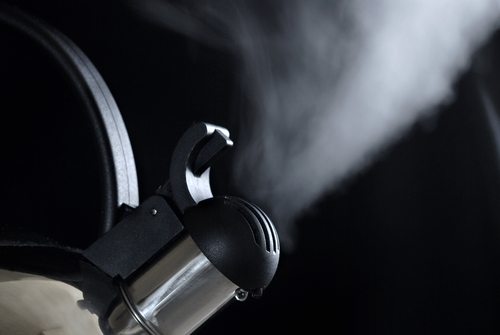
December 17, 2012; Source: Newser (Associated Press)
The Nonprofit Quarterly has long followed the evolving treatment and protection of whistleblowers in government and corporate settings for the lessons we can and should learn about whistleblowers in the nonprofit sector. Just yesterday, we noted one such whistleblower, Bill Harper, who exposed fraudulent practices at the New York City-based job placement service SEEDCO. One of the standout organizations on whistleblower protections has been the Project on Government Oversight (POGO), which has been sued for more than a decade by the federal government over charges that it paid a federal government whistleblower, which would violate a prohibition against supplementing the salary of a federal employee.
The whistleblower in question, Richard A. Berman, was an economist working for the Department of the Interior 14 years ago. At that time, POGO filed a lawsuit in U.S. District Court alleging that “major oil companies had violated the False Claims Act by undervaluing oil they extracted from federal and Indian lands, and therefore underpaid royalties to the U.S.” POGO had asked Berman to join its suit, but he declined. However, the government argues that Berman must have provided some useful information in the case and that POGO agreed to give Berman one-third of whatever it might get from a settlement. The government did settle this and other related False Claims Act cases for a total of $440 million, from which POGO got $1.2 million. In 1998, POGO gave Berman a check for $383,600 with the notion that said check was a “public service award.”
Sign up for our free newsletters
Subscribe to NPQ's newsletters to have our top stories delivered directly to your inbox.
By signing up, you agree to our privacy policy and terms of use, and to receive messages from NPQ and our partners.
Initially, the government’s lawsuit claimed that the money was simply in addition to his government salary, which would constitute illegal compensation for a federal employee. But Berman saw it as the government going after him to punish him for blowing the whistle on oil royalties. Though Berman and POGO lost in U.S. District Court, they won on appeal based on the idea that the payment wasn’t simply for his federal job, but for his outside work as a whistleblower for POGO, which was beyond the scope of his Interior responsibilities. In a new trial at the district court level, POGO and Berman were deemed to have violated the law again, resulting in an order for Berman to repay the money and penalizing POGO with a $120,000 fine, but that was overturned on appeal due to an error in jury instructions.
So in a new trial, the case was argued again. The Justice Department argued that Berman’s work was part of his official Interior Department duties, citing memoranda he had sent to his superiors and a letter that POGO had sent Berman with the check that congratulated him for his decade of work on the oil royalty issue. While the Department of Justice attorney said that Berman was simply doing his job, the POGO attorney said that the memoranda sent to his superiors were exactly what a whistleblower is supposed to do: send the information up the chain of command. In court, Nabatoff asked rhetorically, “Where’s he going to send them, Dairy Queen?”
The jury ended up deadlocked and POGO is hoping that this marks the end of more than a decade of litigation. Obviously, a whistleblower like Berman is taking a personal and professional risk, no matter the whistleblower protection laws on the books. That’s a point, in part, for allowing whistleblowers to share in some of the settlement money that might come from the guilty party having to pay. If it is true that he was informing his superiors about the oil royalties and getting no rectification of the issue, then it seems like his work with POGO could be reasonably assumed to have been beyond the scope of his normal Interior Department activities and therefore, POGO’s check, no matter what POGO wrote on it, was for his extra-Interior information and analysis. We get POGO’s point, we think, though we can understand how jurors might interpret the issue differently.
In POGO’s case, we see a well-respected organization facing years and years of litigation costs for standing up for its principles regarding government whistleblowers. Standing up for principle is difficult. Sometimes, after years and years of litigation, it is cheaper to settle than to fight. Sometimes, however, the principles involved and the reputation of the nonprofit make fighting in court against deep-pocketed plaintiffs—in this case, the very deep-pocketed federal government—something that simply has to be done for the organization’s internal and external integrity.—Rick Cohen













